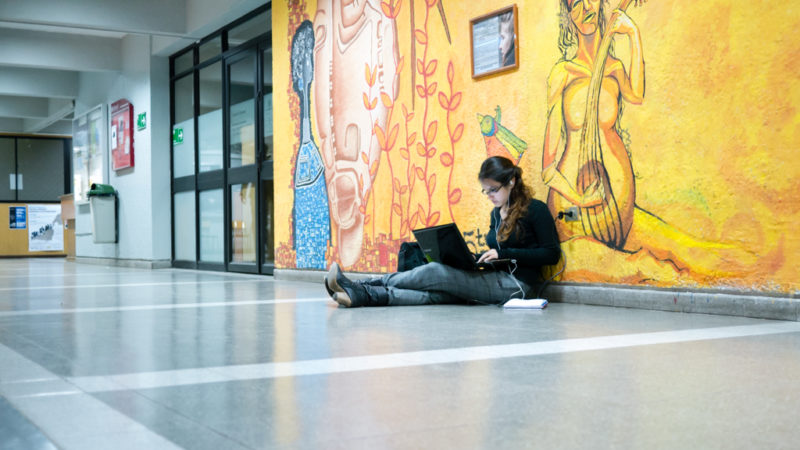Our graduate class on genocide began with the political implications of the Holocaust. Unlike talks surrounding other mass atrocities we discussed over the course of the semester, such as the Armenian or Rwandan genocides, the conversation rapidly devolved into the affairs and alleged misdoings of Israel.
One PhD candidate argued the Holocaust is often exploited by Israel and its backers – particularly in the United States – to silence opposition. For a moment, I genuinely considered the proposition. The statement seemed innocuous at first and logically consistent: states act in their national interest, they avail themselves of all potential resources and are unconcerned by manipulative tactics. But then I wondered: what if the identical scenario had been raised with respect to the slave trade and Jim Crow? Is it conceivable that a student who raised the issue of African-Americans exploiting slavery for political means would be tolerated in the name of fairness?
READ: CANADIAN JDL MEMBER CHARGED IN D.C. BEATING OF PALESTINIAN-AMERICAN MAN
Unfortunately, this sort of conversation is not atypical in contemporary discourse. It signifies a broader trend of discounting anti-Semitism that has seeped into the accepted and tolerated methods of discussion today and highlights an insidious cognitive dissonance. While transphobic, sexist and racist comments are categorically denounced on university campuses and beyond, anti-Semitism is remarkably impervious to such scrutiny.
Recent episodes at Canadian universities, including the saga of McGill student Igor Sadikov, who infamously tweeted “punch a Zionist today” and Ryerson Students’ Union (RSU) president Obaid Ullah, who incited a student-led walkout when a Jewish student suggested the school host a Holocaust education week, serve as a spotlight to the spillover of animosity directed at Israel. Ullah instructed the Ryerson student executive through a Facebook group chat to “lose quorum” for the Holocaust education vote, while another wrote, “The next person in line is Zionist. I have her on Facebook, and she’s really problematic.” Ullah remains RSU president, while Sadikov maintained his position for weeks before finally resigning.
READ: ‘PUNCH A ZIONIST’ DEBACLE REVEALS CAMPUS CULTURE THAT’S PC BUT ANTI-ISRAEL
Meanwhile, when I spoke up against a University of Toronto Graduate Students’ Union motion endorsing the boycott, divestment and sanctions (BDS) movement against Israel, I was informed that my concerns of anti-Semitic incidents were beyond the scope of the motion. “We are not here to consider the character of the organization,” the chair maintained.
Such so-called broadmindedness on the part of university administrators, students and faculty to permit blatant anti-Semitism and incitation of violence strains credulity. The credence such viewpoints unthinkingly award speaks to a deeper truth and unease among young Jewish students throughout North America.
READ: RYERSON STUDENTS STAGE WALKOUT OVER HOLOCAUST EDUCATION MOTION
And so I am drawn to an eye-opening consideration: Anti-Semitism is an unalterable constant, one that we must become comfortable in acknowledging. Although it’s a pendulum that swings between bad and worse, it’s an unfortunate reality. And whatever our convictions of a post-racial or cosmopolitan society, my sense is that the emerging groundswell of Jew hatred on campus will disabuse us of such notions.
So what can we do? My sense is that an important conversation is to be had among Jews. If we’re to be adept at responding to the challenges we face, we must first rededicate ourselves to solidifying intra-communal bonds.
At a rally held outside the Miles Nadal Jewish Community Centre in downtown Toronto after a bomb threat against the JCC, Rabbi Daniel Wolnerman spoke eloquently of the urgent challenges confronting the Jewish Diaspora. Referencing the story of Purim and the Talmud, he argued Haman had a more positive influence on the Jewish People than all the prophets combined; by alerting Jews to the persistent dangers of anti-Semitism, Haman ultimately unified the Jewish People.
Today, we must grapple with a similar narrative. Anti-Semitism is rising. The question is: can we Jews overcome our own divisions to fight together?
Ari Blaff is a masters’ of global affairs student at the University of Toronto.







